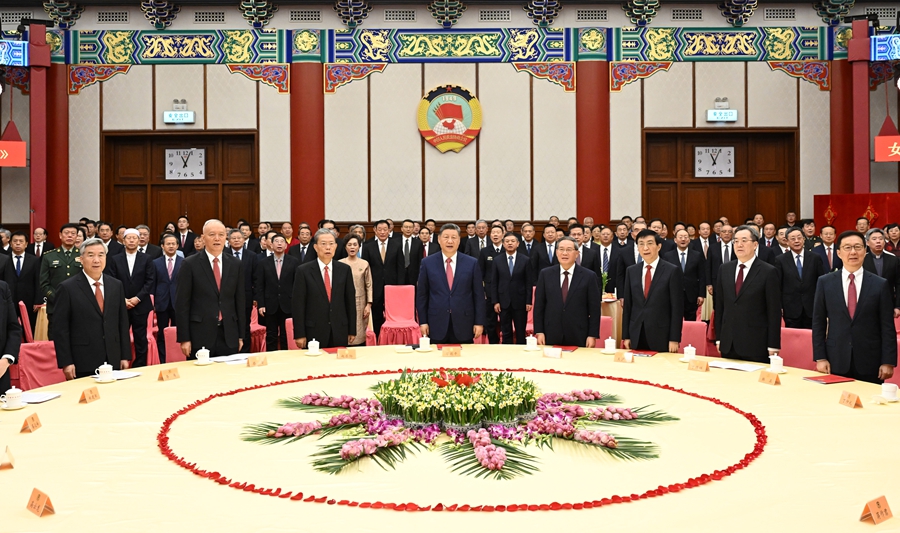FIRST LADY TOURS CENTRAL ASIA.
FIRST LADY TOURS CENTRAL ASIA.
On November 11, U.S. first lady Hillary Rodham Clinton arrived on an unofficial visit to Kazakhstan as part of an eight-day trip to the former Soviet Union that included stops in Kyrgyzstan, Uzbekistan, Russia, and Ukraine. According to the U.S. ambassador in Almaty, the trip aimed to demonstrate U.S. support for the reform efforts of the Central Asian states. Mrs. Clinton’s program was deliberately non-political and was highlighted by her speech at a conference on "Women and Politics in Kazakstan," and by a ribbon-cutting ceremony at a Health Center for Women.
Reactions to her visit varied, as some observers questioned how a non-elected figure could represent a democracy while others appeared flattered that Mrs. Clinton had begun her tour in Kazakhstan. (Zhas Alash, November 13; Karavan, November 14) The most politically significant reaction came from the official mass media, which could not resist stating that, in reality, the visit aimed to buttress Kazakhstan’s economic reform program and to support President Nazarbaev’s visit to the U.S. this week. During her stay the First Lady announced that the U.S. government will increase its support for non-governmental organizations dealing with women’s issues to build democracy in Central Asia.
On November 12, Mrs. Clinton arrived in Bishkek, Kyrgyzstan, where she visited a trade center and later met with President Askar Akaev. She also spoke at the founding of the independent American University in Kyrgyzstan, which was set up with assistance from the Soros Open Society Institute. In a ceremony at which she was named the university’s first "honorary professor," Mrs. Clinton praised the citizens of Kyrgyzstan for demonstrating their "commitment to the future" while at the same time "keeping faith with the glory of [their] past." (BBC, November 13)
The First Lady ended her sweep of the region with a two-day stay in Uzbekistan, where she made stops in Tashkent, Bukhara, and Samarkand. At each site, she singled out the need for citizens of Uzbekistan to remain tolerant of the numerous minority groups in the country. While she voiced no specific criticisms, Mrs. Clinton did raise the issue of human rights in Uzbekistan and expressed the U.S. government’s concern that progress be made in that area. (Uzbek radio, November 13)
Although clearly more symbolic that substantive, the First Lady’s visit to Central Asia was meant to underscore an American commitment to the region. The types of issues she raised, moreover, suggests that, while U.S. interests in Central Asia may be centered on energy and geopolitical matters, Washington will not ignore human rights and democracy-building.
________________________________________________________________________________________________
The Monitor is a publication of the Jamestown Foundation. It is researched and written under the direction of Senior Analysts Elizabeth Teague, Vladimir Socor, Stephen Foye, and Analysts Igor Rotar, Douglas Clarke, Ben Slay, Peter Rutland, Sally Cummings, and Roger Kangas.
If you would like information on subscribing to the Monitor, or have any comments, suggestions or questions, please contact us by e-mail at <host@jamestown.org>, by fax at 202-483-8337, or by postal mail at The Jamestown Foundation, 1528 18th Street NW, Washington, DC 20036.
Unauthorized reproduction or redistribution of the Monitor is strictly prohibited by law.
The Monitor is a publication of the Jamestown Foundation. It is researched and written under the direction of senior analysts Jonas Bernstein, Vladimir Socor, Stephen Foye, and analysts Ilya Malyakin, Oleg Varfolomeyev and Ilias Bogatyrev. If you have any questions regarding the content of the Monitor, please contact the foundation. If you would like information on subscribing to the Monitor, or have any comments, suggestions or questions, please contact us by e-mail at pubs@jamestown.org, by fax at 301-562-8021, or by postal mail at The Jamestown Foundation, 4516 43rd Street NW, Washington DC 20016. Unauthorized reproduction or redistribution of the Monitor is strictly prohibited by law. Copyright (c) 1983-2002 The Jamestown Foundation Site Maintenance by Johnny Flash Productions


